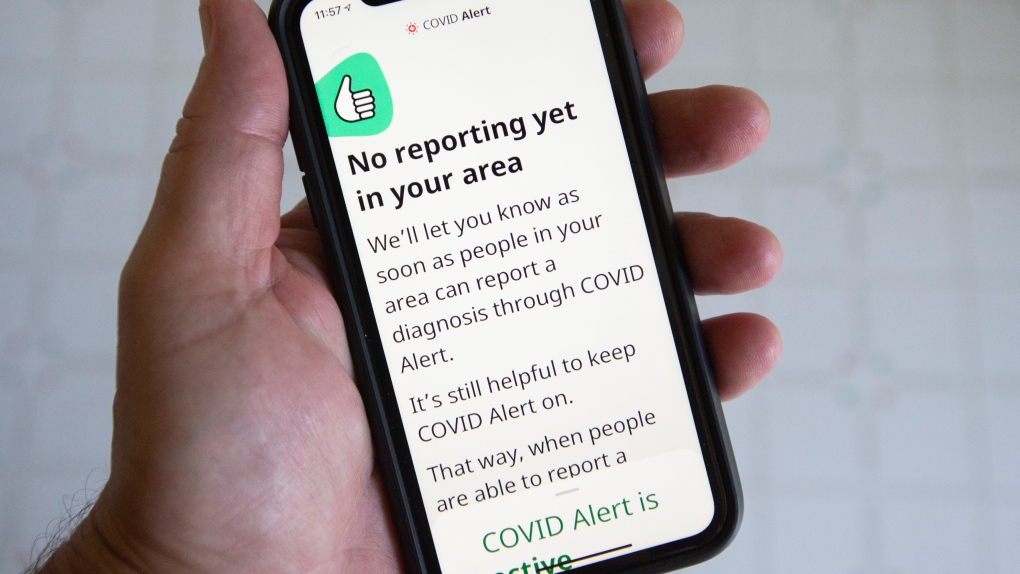COVID-19: Contact tracing requirements for Manitobans
Manitoba’s decision to ask people with confirmed cases of COVID-19 to notify their own close contacts can be effective as long as people are honest, an expert says.
Cynthia Carr, epidemiologist and founder of EPI Research, sees the need for faster notification as the number of cases increases and a more transmissible variant emerges.
“The sooner people know, the sooner we act, the sooner we can work together to stop the spread of this variant that really wants to move very quickly,” Carr said.
Nova Scotia has also started asking people with confirmed cases to notify their close contacts and so has health units in Ontario.
Manitoba said with an expected surge of Omicron, the number of cases and contacts will exceed public health notification resources.
Dr. Brent Roussin, the province’s chief public health officer, first mentioned the move on Friday.
“We will, in many ways, in low-risk situations, have cases reaching out to their contacts and notifying them,” Roussin said last week.
Roussin said the province will continue contact tracing in high-risk scenarios and settings such as health care facilities, schools, daycares and shelters.
However, he said resources were being diverted to vaccination programs where officials felt they could have a bigger impact against omicron.
Carr points out that people’s social circles are expected to shrink anyway due to new public health orders restricting private gatherings and placing capacity limits on businesses and events.
“Even if public health did all the contact tracing, you would still need to know who you were with,” Carr said.
She said that in situations where someone is infected with COVID-19, they should already have an established trust with the people they spend time with and that it may be easier for individuals to reach their contacts. than for public health.
“From my experience, I can tell you that sometimes it’s 10, 12 days later that you finally reach the person,” Carr said. “Well, the window of opportunity to really make an impact is already well past.”
The province declined an interview request to elaborate on the policy and instead directed CTV News Winnipeg to the Manitoba government’s website.
The information defines a close contact as someone you shared space with two days before your symptoms started or before you got tested and 10 days after your symptoms started or after you were tested. Specifically, the website says a close contact is someone you were within two meters of for a total of 10 minutes, even if you’re both fully vaccinated.
Manitoba Public Health said people identified as a close contact should self-isolate for 10 days, monitor for symptoms for an additional four days and contact Health Links (204-788-8200 or 1-888-315-9257) s they develop symptoms.
The province said in an emailed statement that self-isolating may not be required if you are a fully vaccinated close contact and have no symptoms.
“Public health officials will notify close contacts if they meet the criteria for exemption from self-isolation (quarantine),” the province said. “All those exempt from self-isolation (quarantine) requirements should continue to self-monitor for symptoms and self-isolate immediately if they develop and get tested.”
“Household members of close contacts do not need to self-isolate (quarantine) as long as they and the close contact in the household remain symptom-free. If the close contact develops symptoms, all household members, unless otherwise exempted, should self-isolate (quarantine) until the symptomatic person receives their COVID-19 test result.
The move is not for everyone.
“My jaw dropped when I read what they were doing,” said Arthur Schafer, founding director of the Center for Professional and Applied Ethics at the University of Manitoba.
Schafer said contact tracing is skilled work that requires training on how best to protect the privacy and health of Manitobans.
He said some people may be ashamed or unwilling to share their diagnosis.
“If you’ve been diagnosed with COVID, are you competent to tell your close contacts, even to decide who your close contacts are, and then advise what they should do, what symptoms they should watch out for,” Schafer said. . “That they have to get tested, the various precautions that they have to take – it’s a really skillful task.”
“The Manitoba government is dropping the ball at the most critical time. »
Carr said telling close contacts that you have an infectious disease is necessary in other situations unrelated to COVID-19.
“Contact tracing does not take responsibility for you,” Carr said. “Even though public health would generally follow up, whether it’s tuberculosis or a sexually transmitted infection, for example, those reportable diseases that we have to tell others about to get tested, that they are treated if necessary and that they do not. transmit it. These are important partnerships with public health and the individual.
She said if you’re facing a long wait for COVID-19 test results, it can be helpful to let your contacts know you’ve been tested as soon as possible. She said that way people can at least limit their social contact more quickly to help reduce the risk of transmission.
“They’ll be grateful and grateful that you let them know early,” Carr said. “By not telling people, you won’t be able to hide it if they are infected. They will track it down and realize who they were.
The province’s website says to let the organizer know if you were infectious while playing sports or participating in an activity.
The website says if you’ve been to a large gathering, restaurant, or bar, public health officials will log the information, and if there’s an outbreak or new transmission is detected, a public notification may be issued. issued to direct those present towards self-checking.


Comments are closed.